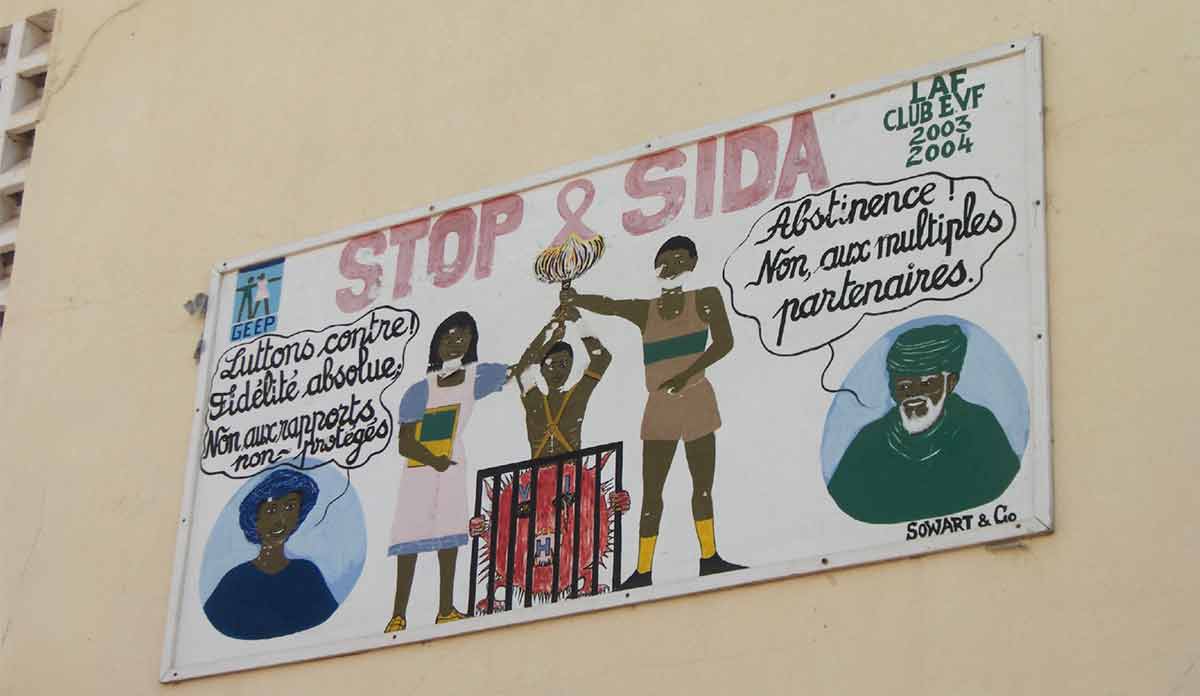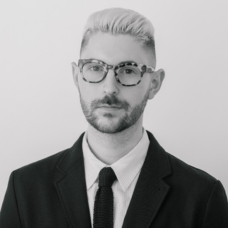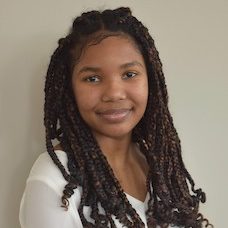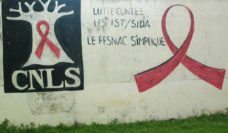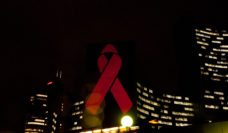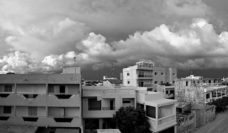For Senegalese men who have sex with men (MSM), discovering LGBT-friendly health providers is as challenging as finding housing, securing employment, and coming out. One non-governmental organization is making it easier for vulnerable Senegalese to access health care. The organization – referred to here as NGO – engages key populations facing discrimination because of their social status and operates in two of Dakar’s neighborhoods.
The NGO partners with the National Network of Key Population Associations to assist Senegalese MSM via three education campaigns. Two campaigns emphasize sexual and reproductive health and harm reduction by partnering MSM with 13 local clinics. A third campaign, implemented in 2016, aims to reduce provider discrimination against LGBT Senegalese.
“We think that it’s a problem of stigma because he who is stigmatized, who is discriminated, he lives in hiding,” said an NGO representative managing the campaigns. “There are those who are watching his every move, so he’s scared to go to the hospital. He’s scared to go to the clinic.”
In 2015, Amadou joined Association Prudence, Senegal’s largest LGBT health and human rights advocacy group. He realizes how homophobia among health providers is a barrier to MSM accessing health care .
“They don’t have the understanding to accept MSM or lesbians to treat us,” Amadou said. “In Senegal, people say that MSM are troublemakers, so they don’t touch us. They don’t see us. They don’t greet us. It wouldn’t be normal for them to treat us.”
Issa recently joined Prudence. He hides his sexuality from his father and also refuses to disclose his sexual orientation to health providers. Outing himself to friends, family, or health providers could lead to violence against MSM.
“When gays have sexually transmitted infections, we’re scared to go to the hospital for treatment,” Issa said. “There are even some hospitals that turn away from gays. When I go to the doctor, I never tell him that I’m gay.”
A disproportionate number of Senegalese MSM suffer from HIV: the prevalence ranges between 38-44% in this key population, but affects less than 1% of the general population in Senegal. Prudence refers HIV-positive MSM to LGBT-friendly health providers, although LGBT-friendly health providers, too, have to closet themselves when delivering services to Senegalese MSM. Although LGBT-friendly health providers are few and far, Lamine used Prudence to find a safe clinic.
“I always want to know my health [status],” Lamine said. “Every three months, I go for testing to also control my health.”
Recently, Amadou represented Prudence at a community discussion in Dakar. The conference fostered a dialogue on HIV/AIDS prevention between key populations, politicians, and religious leaders.
“They don’t have the understanding to accept MSM or lesbians to treat us,” Amadou said. “In Senegal, people say that MSM are troublemakers, so they don’t touch us. They don’t see us. They don’t greet us. It wouldn’t be normal for them to treat us.”
“They told us that it’s the LGBT community who is responsible for the AIDS virus spreading throughout Senegal,” Amadou said. “Can you believe that? As if it’s only us who have sexual relationships.”
During the focus group discussions with community stakeholders, he underscored the LGBT community’s role in HIV prevention. Amadou sees how the partnership between Prudence, the NGO, and LGBT-friendly health providers revolutionizes care for the vulnerable because it includes members of the Senegalese LGBT community in service delivery.
“I know that not everybody is MSM, but the majority of people fighting this virus are MSM,” Amadou said.
As a part of the third education campaign, the NGO plans to organize a community discussion similar to the conference Amadou attended with Prudence.
“We’re organizing debates with the community that are composed of religious leaders and doctors,” the NGO representative said. “I think that it’s important because if these leaders are informed, then they’ll return and inform everyone else.”
The education campaigns help foster a dialogue around the need for LGBT-friendly health providers by engaging MSM and community leaders in Senegal.
“We try to work with these key populations so that they can live their sexual orientation without being an object of stigma, discrimination, and persecution because there are those who are persecuted,” the NGO representative said.
Cheikh, another member of Prudence, was beaten by onlookers after attending a friend’s birthday party in Pikine. The police outed him to his family, and he fears seeking health services because of the stigma associated with identifying as MSM.
“We need everything,” Cheikh said. “We need to live like everyone else. When everyone else is sick and they go to the hospital, they’re treated like Senegalese citizens. Here, we’re not.”
Editor’s note: The NGO is unidentified and the informants’ names are changed to protect their safety. Interviews were conducted in French and translated to English.
This is part three in a series about LGBT health in Senegal. Click here for parts one, two and four. The informants’ names are changed to protect their safety. Interviews were conducted in French and translated to English.
Version française : Campagnes offrent l’accès aux soins de santé pour HSH sénégalais
Pour des hommes sénégalais ayant des relations sexuelles avec d’autres hommes (HSH), découvrir les fournisseurs de santé qui traitent la communauté LGBT est aussi difficile que trouver le logement, obtenir un emploi et faire le coming-out. Une organisation non-gouvernementale facilite l’accès aux soins de santé pour les populations vulnérables. L’organisation – identifiée dans cet article comme ONG – engage les populations clés qui font face à la discrimination à cause de leur statut social.
L’ONG fonctionne en partenariat avec le Réseau National des Associations des Populations Clés (RENAPOC) pour mettre en place trois campagnes d’éducation pour les HSH. Deux campagnes soulignent la santé sexuelle et reproductive en formant un partenariat avec 13 cliniques locales. La troisième cible la discrimination contre la communauté LGBT à la main des fournisseurs des soins de santé.
« Nous pensons que c’est un problème de préjugés parce que celui qui est stigmatisé, qui est discriminé, il vit en cachette» a dit un représentant de l’ONG gérant les campagnes. « Certaines personnes regardent leurs faits et gestes , donc ils ont peur d’aller à l’hôpital. Ils ont peur d’aller à la clinique. »
En 2015, Amadou a rejoint l’Association Prudence, le plus grand groupe de défense pour la santé et les droits de l’homme LGBT au Sénégal. Il s’est rendu compte que l’homophobie chez les fournisseurs de soins de santé est un obstacle à l’accès aux soins chez les HSH.
« Ils n’ont pas la connaissance d’accepter les HSH ou les lesbiennes nous nous traiter » a dit Amadou. « Au Sénégal les gens disent que les HSH sont des fauteurs de troubles alors ils ne nous touchent pas. Ils ne nous voient pas. Ils ne nous accueillent pas. Ce ne serait pas normal pour eux de nous soigner. »
Issa a rejoint Prudence récemment. Il cache son orientation sexuelle à son père et il refuse également de divulguer son orientation sexuelle aux établissements de soins. En se révélant aux amis, la famille, les prestataires de santé pourrait conduire à la violence contre les HSH.
« Quand les homosexuels ont des infections sexuellement transmissibles nous avons peur d’aller à l’hôpital pour un traitement » a dit Issa. « Il y a même des hôpitaux qui se détournent des homosexuels. Quand je vais chez le médecin, je ne lui dis jamais que je suis homosexuel. »
Un nombre disproportionné de HSH sénégalais souffrent du VIH : la prévalence varie entre 38-44% dans cette population clé mais le virus affecte moins de 1% de la population générale au Sénégal. Prudence oriente les HSH séropositifs vers des prestataires de santé amicaux qui traitent la population LGBT bien que ces prestataires doivent également se cacher parce qu’ils fournissent des soins de santé aux HSH sénégalais. Bien que ces fournisseurs ne soient pas nombreux, Lamine a utilisé Prudence pour trouver une clinique sûr.
« Je veux toujours connaître mon état de santé » a dit Lamine. « Tous les trois mois je me fais dépister pour contrôler ma santé. »
Récemment, Amadou a représenté Prudence lors d’une discussion communautaire à Dakar. La conférence a encouragé un dialogue sur le sujet de la prévention du SIDA entre les populations clés, les politiciens et les chefs religieux.
« Ils nous ont dit que c’est la communauté LGBT qui est responsable de la propagation du virus à travers tout le Sénégal » a dit Amadou. « Peux-tu croire ça ? Comme si c’est seulement nous qui avons des relations sexuelles. »
Au cours des discussions de groupes avec les intervenants communautaires, il a souligné le rôle de la communauté LGBT dans la prévention du VIH. Amadou voit que le partenariat entre Prudence, l’ONG et les fournisseurs de santé révolutionne les soins prodigués aux personnes vulnérables parce qu’il inclut des membres de la communauté LGBT sénégalaise dans la prestation de services.
« Je sais que ça n’est pas tous les HSH, mais la majorité des gens qui luttent contre ce virus sont des HSH. » a dit Amadou.
Dans le cadre de la troisième campagne d’éducation, l’ONG prévoit d’organiser une discussion communautaire similaire à la conférence à laquelle Amadou a assisté avec Prudence.
« Nous organisons des débats avec la communauté, composés des chefs religieux et de médecins » a dit le représentant de l’ONG. « Je pense que c’est important parce que si ces dirigeants sont informés, ensuite ils reviendront et informeront les autres. »
Les campagnes d’éducation aident à encourager un dialogue sur le besoin des fournisseurs de santé qui engagent les HSH et les dirigeants communautaires au Sénégal.
« Nous essayons de travailler avec ces populations clés afin qu’ils puissent vivre leur orientation sexuelle sans faire l’objet de préjugés, de discrimination et de persécution. Parce qu’il y a aussi ceux qui sont persécutés » a dit le représentant de l’ONG.
Cheikh, un autre membre de Prudence, a été battu par des spectateurs après avoir assisté la fête d’anniversaire d’un ami à Pikine. La police a révélé son orientation sexuelle à sa famille et il craint de chercher des services de santé à cause des préjugés associés à l’homosexualité.
« Nous avons besoin de tout », a dit Sheikh. « Nous devons vivre comme tout le monde. Lorsque tous les autres sont malades et qu’ils vont à l’hôpital, ils sont traités comme des citoyens sénégalais. Ici, nous ne le sommes pas. »
Note de l’éditeur: Cela est la partie trois d’une série sur la santé des LGBT au Sénégal. Cliquez ici pour lire les parties un, deux, et quatre. Les noms des informateurs sont changés pour protéger leur sécurité. Des entretiens ont été menés en français et traduits en anglais.
Image: HPIM1525 by Xavier Damman, used under CC BY/cropped from original









